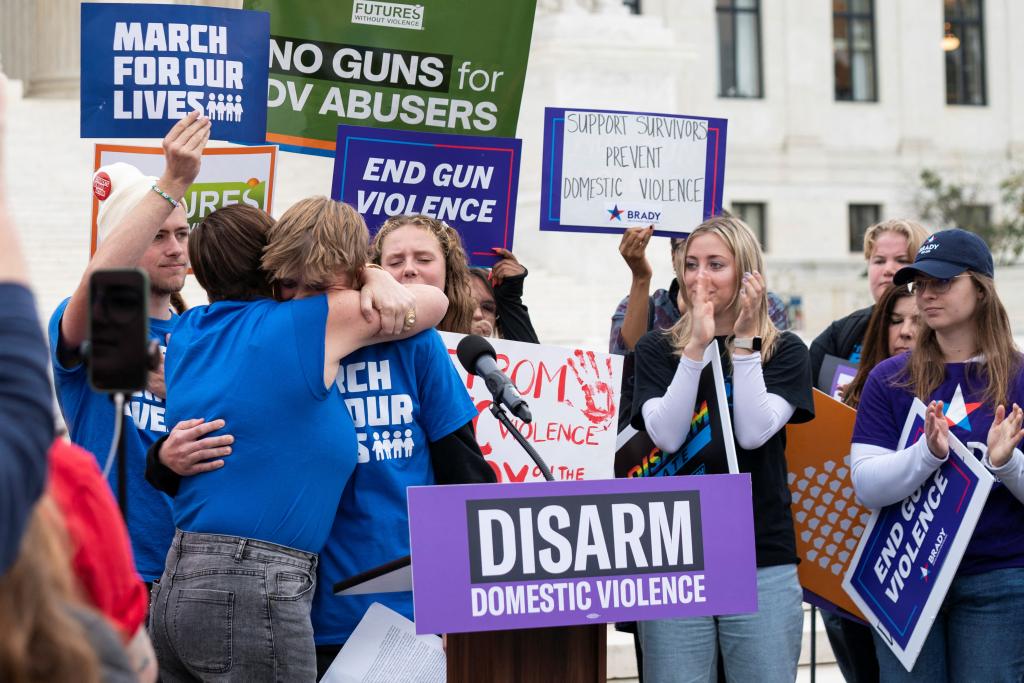
The US Supreme Court on Friday, June 21, upheld a federal law that prevents people who are subject to domestic-violence restraining orders from having firearms.
The Supreme Court ruled that a federal law barring Americans under domestic violence restraining orders from possessing firearms does not violate the Second Amendment.
“Since the founding, our Nation’s firearm laws have included provisions preventing individuals who threaten physical harm to others from misusing firearms,” Chief Justice John Roberts wrote for the 8-1 majority.
“As applied to the facts of this case, [the current law] fits comfortably within this tradition.”
The case was brought by Zacky Rahimi, who was accused of hitting his girlfriend and firing his gun at a witness in a Fort Worth, Texas, parking lot in December 2019.
Rahimi’s girlfriend obtained a protective order against him in February 2020, after Rahimi threatened to shoot her, according to the Justice Department,
Eleven months later, Rahimi’s apartment was searched by police and firearms were found, along with a copy of the restraining order.
Rahimi pleaded guilty to violating the federal gun law, but argued that the restriction violated his Second Amendment rights, setting the case in motion.
The Supreme Court has now ruled that the law barring those deemed dangerous and violent from possessing firearms does not violate the Second Amendment.
In an 8-1 ruling, Chief Justice John G. Roberts Jr. said that “when a restraining order contains a finding that an individual poses a credible threat to the physical safety of an intimate partner, that individual may — consistent with the Second Amendment — be banned from possessing firearms while that order is in effect.”
Friday’s decision reversed a 2023 ruling by the New Orleans-based 5th US Circuit Court of Appeals, where a three-judge panel ruled that the restraining order ban failed a test set by the high court’s landmark 2022 ruling in New York State Rifle & Pistol Association, Inc. v. Bruen, which requires gun laws to be “consistent with the nation’s historical tradition of firearm regulation.”







